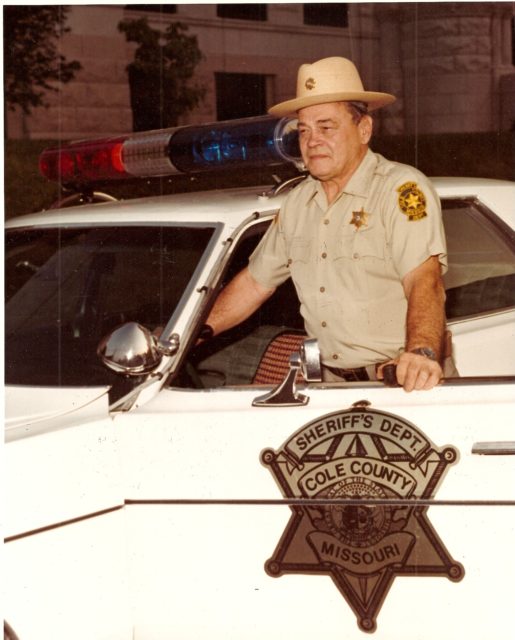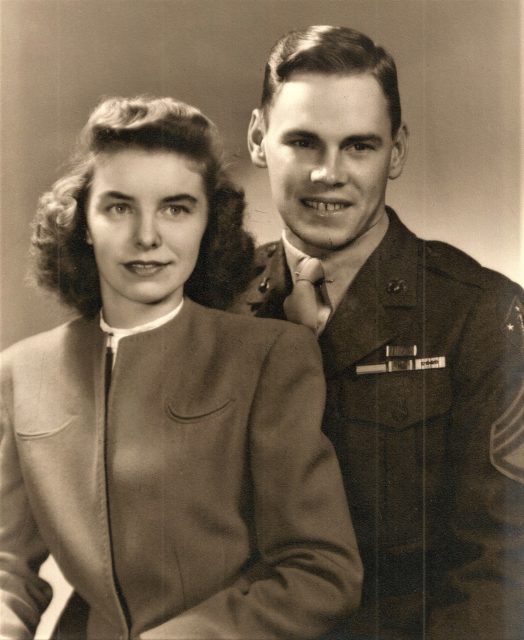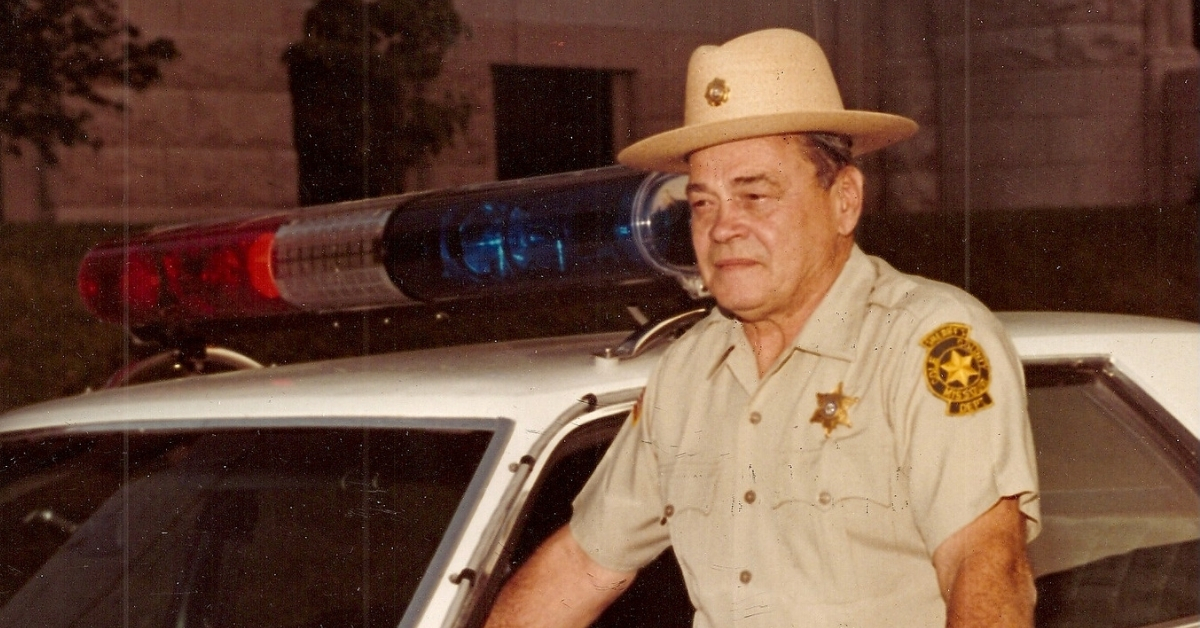Wyman S. Basinger has a reputation that endures following his years of service as sheriff of Cole County, Missouri, earning him the distinction as a firm, but fair, law enforcement official. His engagement with a number of organizations in the community hardened his noble reputation; however, few realize that his spirit of public service was developed and forged during his service with the Marine Corps, which earned him a Bronze Star and two Purple Hearts during World War II.
Born in Cedar City on August 10, 1922, Basinger went on to graduate from. Jefferson City (Missouri) Senior High. According to his registration card, the 19-year-old was employed by Montgomery Ward in Jefferson City, when he registered for the military draft on June 30, 1942.
Rather than wait on a determination of his local draft board, Basinger “enlisted in the U.S. Marine Corps (on September 1) 1942, serving 31 months with the First Marine Division in the South Pacific,” reported the Jefferson Post-Tribune on January 3, 1968. “He participated in four major campaigns, including New Britain and New Guinea,” the newspaper further explained.
In late December 1943, the 23-year-old Marine was embroiled in the thick of combat when “the 1st Marine Division landed on the western tip of New Britain to seize an important airfield at Cape Gloucester,” wrote Trever Dupuy in “Asiatic Land Battles: Japanese Ambitions in the Pacific.”
According to a history of the 1st Marine Division listed on the website of the U.S. Marine Corps, the division was “the first ashore at the Battle of Cape Gloucester on 26 December 1943; and continued fighting on the island, at such places as Suicide Creek and Ajar Ridge, until February 1944.”

Although the next battle of the war for 1st Marine Division, the Battle of Peleliu, is considered the bloodiest and most costly of the war in terms of lives with the division losing 1,749 Marines in 10 days of fighting, Basinger was fortunate to survive without any injuries. Sadly, the providence that had protected the Marine evaporated during the division’s next major battle—the Battle of Okinawa.
On April 1, 1945, “more than 60,000 soldiers and US Marines of the US Tenth Army stormed ashore at Okinawa, in the final island battle before an anticipated invasion of mainland Japan,” notes an article by the National World War II Museum. “After a largely unopposed initial advance, US forces soon encountered a network of Japanese inland defenses.”
During the intense fighting that unfolded in the next two and a half months, Basinger was wounded when struck by shell fragments on one of his hands. On June 18,1945, he incurred a more serious wound when peppered by shell fragments across his back. He survived and recovered from his injuries; however, approximately 12,000 of his fellow Americans were killed during the struggle to take Okinawa.
While on furlough from the Marines Corps, Basinger married the former Frances Virginia Hunter on August 21, 1945, during a ceremony in Kansas City, Kansas. The Marine sergeant received his discharge on November 9, 1945, and shortly after his return to Jefferson City, embarked upon a career as a printer with the Commercial Printing Company.

He began to acquire law enforcement experience as early as 1949, when he became a member of the American Legion Police—an organization comprised of volunteers who assisted the local police force in times of emergency or when additional officers were needed.
The Daily Capital News reported in their January 4, 1968 edition that the World War II veteran had been “recalled to active duty in the Korean War…” He was stationed in California, where he “served as a weapons and demolition instructor” for Marines preparing for combat overseas until receiving his second and final discharge on March 11, 1952.
Shortly after his return to Jefferson City, he embarked upon a life of volunteerism when elected president of the Jefferson City Jays Booster Club, coached the American Legion junior baseball team and was a deputy sheriff for a number of years. Additionally, he was an active in several local veterans’ organizations including the American Legion, Veterans of Foreign Wars, Disabled American Veterans and the Marine Corps League.
Basinger left his career as a printer in 1968 when he was elected Cole County sheriff. While serving his fifth consecutive term as sheriff in 1986, he died from a massive blood clot after he was involved in a vehicle accident when responding to an emergency call near Brazito.
A section of State Highway 179 was designated the Wyman S. Basinger Memorial Highway in 2006 through Senate Bill 990, which was sponsored by the late Senator Carl Vogel of Jefferson City. Additionally, the VFW Post in St. Martins, Basinger-Sone Post 1003, is co-named in honor of the late Marine,
“Wyman and Frances never had any children of their own and I think that allowed them to do so much for so many kids in the area,” said Becky Hunter Ambrose, Basinger’s niece. “He often dressed up as Santa Claus around Christmas and visited homes where a child might be having a problem or there was a single parent living there.”
She continued, “He was so respected that I can remember at his funeral visitation, there were lots of men who came through the line and said things to my Aunt Frances like, ‘Wyman arrested me a bunch of times but kept me from getting into real trouble.’
When the hearse and procession left the church and drove past the old jail, a jailer and two trustees stood on the steps of the jail and saluted.” Softly, she added, “Not many sheriffs would be treated that way.”
Jeremy P. Amick writes on behalf of the Silver Star Families of America.
